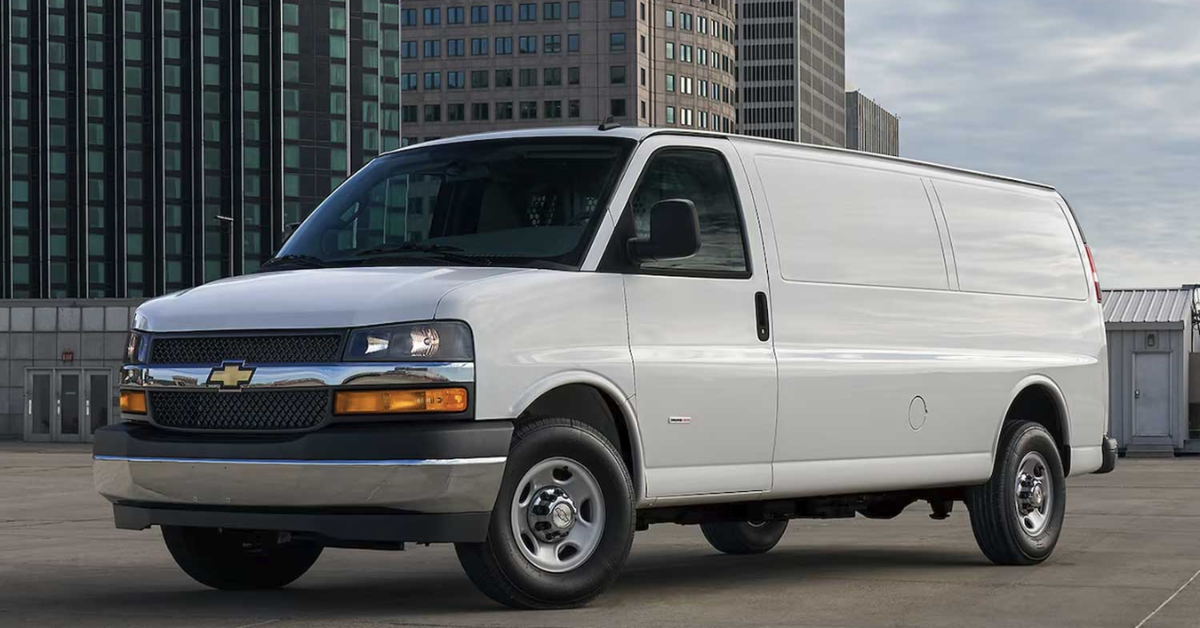The Chevrolet Express and GMC Savana have been the backbone of General Motors’ commercial van segment for decades. First introduced in 1996, these full-size vans have remained largely unchanged — a rare phenomenon in an industry driven by rapid innovation. In 2025, with increasing competition, EV transitions, and new safety regulations, many believe that now is the perfect time for GM to finally modernize its aging workhorses.
Longevity vs. Innovation: A Double-Edged Sword
One of the reasons for the continued presence of the Chevy Express and GMC Savana is their reliability. Fleet operators, electricians, plumbers, and delivery companies trust them for one key reason: they work. These vans are easy to repair, have parts readily available, and are known for being durable.
However, that same simplicity is now becoming a liability. In a market where competitors are offering advanced infotainment systems, electrified powertrains, and improved driver assistance features, the Express and Savana are beginning to feel outdated.
How They Stack Up Against the Competition
Today’s commercial van market is more competitive than ever. Automakers like Ford (Transit), Mercedes-Benz (Sprinter), and Ram (ProMaster) are continuously refreshing their offerings to meet the evolving needs of businesses and cities.
Key areas where competitors outshine the GM twins include:
- Fuel Efficiency: Competitors offer hybrid or electric options, reducing long-term operating costs.
- Technology: Modern vans are equipped with touchscreen interfaces, GPS tracking, and vehicle health monitoring.
- Safety: The lack of advanced driver-assistance systems (ADAS) in the Express and Savana is a growing concern.
Regulatory Pressures in 2025
New environmental regulations, especially in urban areas, are forcing businesses to consider alternative-fuel or electric vehicles. Cities like Los Angeles and New York are implementing stricter emissions policies. Meanwhile, Europe is pushing ahead with mandates that will eventually ban combustion engines altogether in certain zones.
As a result, GM’s combustion-only approach with the Express and Savana puts them at risk of being phased out by government regulations — unless they evolve quickly.
Why 2025 Is the Right Time to Upgrade
So, why now? What makes 2025 the ideal time for General Motors to take action? Here are some compelling reasons:
- EV Infrastructure Is Expanding: Charging stations and support for electric commercial vehicles have become more widespread. Businesses are increasingly willing to invest in EV fleets.
- Fleet Contracts Are Shifting: Major fleet operators are now prioritizing sustainability in their vehicle contracts. GM could miss out on large government and corporate deals without modern offerings.
- Customer Expectations Have Changed: Today’s commercial vehicle buyers expect more than just utility — they want comfort, technology, and safety too.
- GM’s Own Progress in EVs: With platforms like Ultium and experience from the BrightDrop division, GM is already capable of launching next-gen electric vans. The time is ripe for transferring this tech to work vans.
What Should a Modern Chevy Express or GMC Savana Look Like?
A modernized version of these vans doesn’t have to lose their essence. In fact, GM can build on their legacy with the following upgrades:
- Electric Powertrain Option: Offering both internal combustion and EV options can bridge current customer needs and future trends.
- Modular Cargo Interiors: Customizable interiors that cater to electricians, delivery companies, and mobile service providers.
- Connectivity & Tech: Wireless Apple CarPlay, Android Auto, remote diagnostics, and over-the-air updates.
- ADAS & Safety: Include adaptive cruise control, lane-keeping assist, blind-spot monitoring, and 360-degree cameras.
- Improved Ergonomics: Comfortable seats, better insulation, easier cargo access, and improved ride quality.
Is GM Already Working On a Successor?
GM has not officially confirmed a direct successor to the Express or Savana, but there are hints. The company has been investing heavily in its BrightDrop division — which focuses on electric delivery vans. BrightDrop’s Zevo lineup could indicate GM’s future direction for commercial vehicles.
If GM intends to replace the Express and Savana, it could either:
- Integrate them under the BrightDrop brand as fully electric solutions, or
- Introduce redesigned versions under the same Chevy and GMC banners but with updated powertrains and features.
Risks of Delaying the Upgrade
If GM waits too long to refresh these models, it could lose significant market share to competitors. More importantly, its brand image in the commercial vehicle segment could suffer. Businesses are future-proofing their operations — and they want partners (like automakers) who are doing the same.
Conclusion: Evolve or Be Replaced
The Chevrolet Express and GMC Savana have served businesses well for nearly three decades. Their continued success lies not in staying the same, but in evolving to meet modern needs. With electric and digital transformation sweeping the auto industry, 2025 presents a golden opportunity for GM to reinvent its commercial van lineup.
A thoughtful, tech-forward update could ensure that these legendary work vans don’t become relics of the past — but rather icons of the future.

